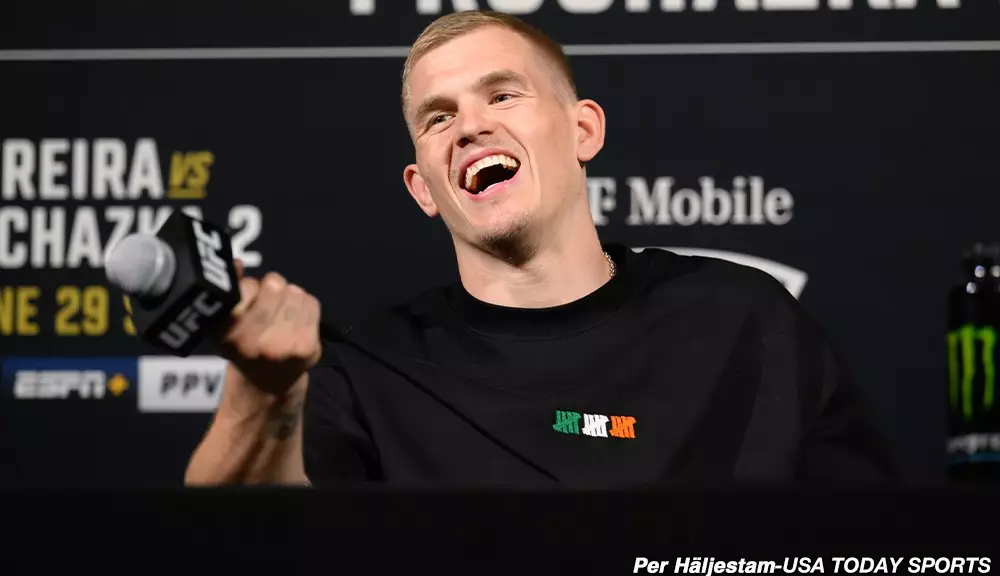The world of Mixed Martial Arts (MMA) is rife with intensity, not only inside the octagon but also in the corridors of negotiation and match-making. Recent developments surrounding Ian Machado Garry—an undefeated welterweight fighter with a record of 18-0 (8-0 in the UFC)—have highlighted the complexities of fighter match-ups and the reasons behind the decisions that shape them. Garry, who has recently been preparing for a headlining bout against Joaquin Buckley on December 14 at UFC on ESPN 63 in Tampa, has become increasingly vocal about wanting to challenge notable opponents in his division, particularly Colby Covington.
The crux of Garry’s frustration lies in his claim that Kamaru Usman, a former welterweight champion with an MMA record of 20-4 (15-3 in the UFC), has been avoiding a matchup with him. Garry contends that discussions with UFC executives suggested that Usman was uninterested in fighting him, labeling this hesitance as a sign of fear. Such assertions bring up critical questions about the motivations of seasoned fighters as they maneuver toward the twilight of their careers. While Garry’s remarks arose in a podcast interview, they revealed a deeper-seated tension in the welterweight division—a tension intensified by the shifting tides of young talent versus established veterans feeling the pressure of competition.
Notably, Garry’s skepticism extends beyond Usman to include Covington, underscoring a broader narrative about player dynamics within the UFC. As fighters like Garry look to ascend to the top echelons of their sport, they must navigate the strategic choices of more experienced fighters, who may prioritize favorable matchups over challenging competitions. This strategic play can lead to a perception of cowardice, as Garry opines about Usman’s physical prowess being at odds with a lack of willingness to engage in dangerous fights.
The example Garry laid out, showcasing Usman’s reported interest in facing Jack Della Maddalena instead of him, suggests that fighters may often choose opponents based on stylistic advantages rather than merit-based considerations. This focus on risk management raises important questions about the integrity of competitive spirit in the UFC. Are fighters adhering to a code of valor, or are they simply playing a game of survival at the peak of their abilities?
As MMA continues to evolve, Garry’s vocal approach hints at a new generation of fighters who are unafraid to express their ambitions and frustrations. With the UFC spotlight shifting towards these rising stars, the dynamic between established fighters and new contenders remains pivotal. Fight negotiations will continue to be scrutinized, with fans eager to witness showdowns that reflect true competition rather than strategic avoidance.
Ultimately, Garry represents a fresh wave in MMA, unencumbered by the legacies of past champions, as he continues to push for bouts that not only elevate his own status but also reflect the championship ideals of skill, bravery, and resilience. The engagement of fighters in healthy competition, regardless of the complications around matchmaking, will define the landscape of the welterweight division for years to come.

